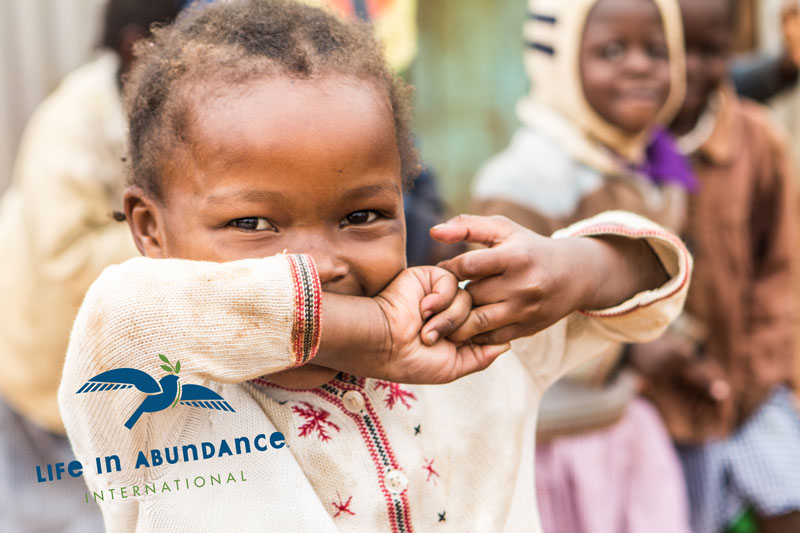 Breaking Free of Paternalism: Part 2
Breaking Free of Paternalism: Part 2
We have a problem with the way we have been trying to help people in the context of poverty. It has created dependencies and helped erode the dignity that all of us need in order to function as the capable people God means for us to be. The good news is, no one is seriously denying this reality. There seems to be a growing collective will, not just to do better, but to do differently reminding me of the quote from Albert Einstein, “We cannot solve our problems with the same thinking we used when we created them.”
So we are actively looking for new ways to think about the poor, the causes of poverty as well as the remedies. I like how the folks at PovertyCure are even challenging us to re-think both our definition of poverty as well as our end game. The goal is not “poverty alleviation” but rather “human flourishing.” What can we do to help create the conditions for human flourishing? What are the conditions for human flourishing? Both questions introduce us to a new way of thinking about and ultimately working on solutions to poverty.
In his 2015 SATtalk Michael Matheson Miller of PovertyCure asked, “What are the foundations that enable people to create prosperity for their own families and their own communities and how can we come alongside and help?” He makes the point that much of our effort to help the poor has actually objectified them rather than seeing them as the protagonist in their own story. He gives us not only a different way to look at the poor but a different way to think about poverty and the poor themselves. He concludes his talk with the statement, “When we understand the dignity of the human person endowed with creative capacity and made in the image of God, it changes absolutely everything about the way we understand charity, missions, development and the poor.” See his entire SATtalk here:


Another way to move beyond the thinking that helped create the problems we now experience in our work with the poor is to invite new people into the conversation. I’m thinking specifically about indigenous leaders with ideas and the capacity to execute. I wonder how often we overlook this group as we look for partners to work with especially in our international mission’s work. We speak of “empowering” people which generally means “building capacity” through some kind of training or mentoring program. But what if the capacity and leadership is already there and they simply lack the resources and networks to execute?
Without ever meaning it our conversations about empowerment often carry a soft paternalism suggesting that there is no one with the capacity or the inside know-how to do anything until we have first “empowered” them. The truth is there are perfectly capable people in virtually every context and the only things they lack are resources, opportunity and networks. They may not need our seminars, our mentors, our coaches, or our over developed memorandums of understanding. Instead, they may very well need us to join them in their plans and ideas, to listen to them and support them in the design process and allow them the final say.
One of those leaders is Dr. Florence Muindi a native to Kenya, and a medical doctor by training. She’s also the founder and CEO of Life In Abundance International (LIA), an African-founded, faith-based community development organization currently working in Africa and the Caribbean, with a pilot program in the US. Their mission is “to mobilize the local Church to restore health, renew hope, and inspire lasting transformation for the world’s most vulnerable children and families”.
LIA’s model is something that Dr. Muindi developed and designed herself and takes a wholistic approach focusing on the four key areas of economic development, community health, education and social engagement. Her approach requires community ownership and a commitment to long-term, sustainable solutions. In her own words, “On-Going Relief is the killer of development because it creates dependency. It brings a message to the people receiving relief that they are not capable. It takes away their dignity and it affirms that an outside force would be the only one to address their needs.”
In the summer of 2015, LIA invited the Institute for Urban Initiatives to embark on a focused study to examine the extent to which LIA’s model of development has a lasting impact on the communities that it serves. According to the report, “LIA has a strong philosophy of empowering the communities with which it works, rather than creating dependence on LIA or other external support services. It therefore adheres to a strict policy of partnering for at most three years in a given community. At the end of its three year programs, LIA has consistently met targeted outputs and outcomes, including improved health, increased prosperity and renewed hope among participants.”
The report further concluded, “There is no question that the people are engaged in effective and transformative ways to bring change to their communities. At each of the six sites, we saw that long after LIA has gone, communities continue to seek ways to improve their health and vitality, to learn new skills and gain knowledge, to use those skills to increase their incomes, and to care deeply for one another. And beyond this, they demonstrate to the broader community that by working together (churches, businesses, neighborhoods) they do not have to wait for someone to rescue them, but that they themselves are the agents for their own transformation.” (Click Here to read the full report)
Like the work of Zoe mentioned in the previous article, (Breaking Free of Paternalism: Part 1) here is a ministry with a strategy developed by Africans for Africans that is working and even expanding. It’s a ministry where both the design and final say belong to a capable indigenous leader. Empowerment programs that help build capacity and leadership in the people and organizations we want to partner with will always have a place in the betterment work of church missions. But the work of building better partnerships takes a giant step forward when we take the time to at least look for ministries like ZOE and LIA who already have both the capacity and leadership to execute. Their insights into the realities of poverty and the local context will bring a different way of thinking about how to help people and communities create sustainable solutions.
by Tom Bassford
 You can see and hear Dr. Muindi at this year’s SATtalks on October 6-7 in Kansas City.
You can see and hear Dr. Muindi at this year’s SATtalks on October 6-7 in Kansas City.
Learn more about Life In Abundance
 SATtalks is a two-day TED Talk type of event for people interested in sustainable solutions through church missions. Presenters give their best 18-minute talk to a live audience about what they’re doing and learning, what’s working and what’s not, followed by a time for Q&A and plenty of opportunity to network with other like-minded people.
SATtalks is a two-day TED Talk type of event for people interested in sustainable solutions through church missions. Presenters give their best 18-minute talk to a live audience about what they’re doing and learning, what’s working and what’s not, followed by a time for Q&A and plenty of opportunity to network with other like-minded people.
Leave A Comment
You must be logged in to post a comment.